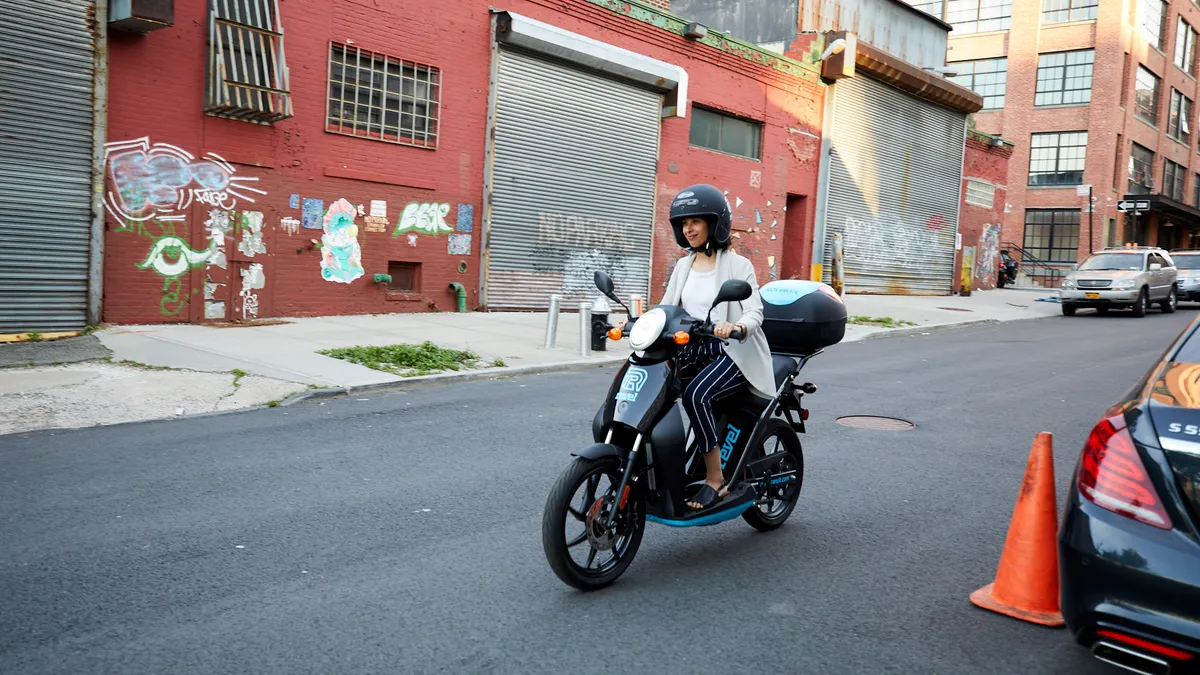Dive Brief:
- Startup company Revel Transit has deployed a fleet of electric mopeds in the Brooklyn neighborhoods of Greenpoint, Williamsburg and Bushwick, with plans to expand to all of New York City if things go well.
- The mopeds, accessible through the company's app, are limited to New York's streets (no highways or major routes or bridges permitted) and must stay out of bike lanes and sidewalks. After an initial $25 fee for a background check, each ride costs $4 for the first 20 minutes and another 25 cents per minute while moving or 5 cents a minute while parked.
- Revel's mopeds include insurance, helmets and free training for riders. "Revel is more than just a new way to get around — it’s a missing link from New York’s transportation network," co-founder Paul Suhey said in a press release.
Dive Insight:
Most mobility startups have been slow to launch in New York City, with dockless bikes only arriving in the city this month as part of a controlled pilot. However, due to immense traffic congestion, a coming subway line shutdown and pending caps on licenses for ride-share services like Uber and Lyft, new mobility offerings such as Revel are likely to be welcomed by city residents.
Revel’s founders say they’re trying to introduce more shared options to Brooklyn without "disrupting" the existing transportation system (crucially, the scooters can only go to Brooklyn and Queens, and must be parked in existing spaces). The company has also been in communication with city transportation officials about the launch, in sharp contrast to some dockless scooter companies that have dropped their vehicles in cities without regulations.
"We’re trying to be good partners and make sure no one is surprised by this," co-founder Frank Reig told The Wall Street Journal.
Shared mopeds have also been popular in Europe and in San Francisco, in part because they can move faster than bikes and don’t require as much effort (read: sweat). Given that the company wants it to fit into the existing system, especially with the closure of the L train through Brooklyn, it could offer an alternative that Brooklyn residents are looking for, expanding the mobility options in New York beyond the subway and Citi Bike.











